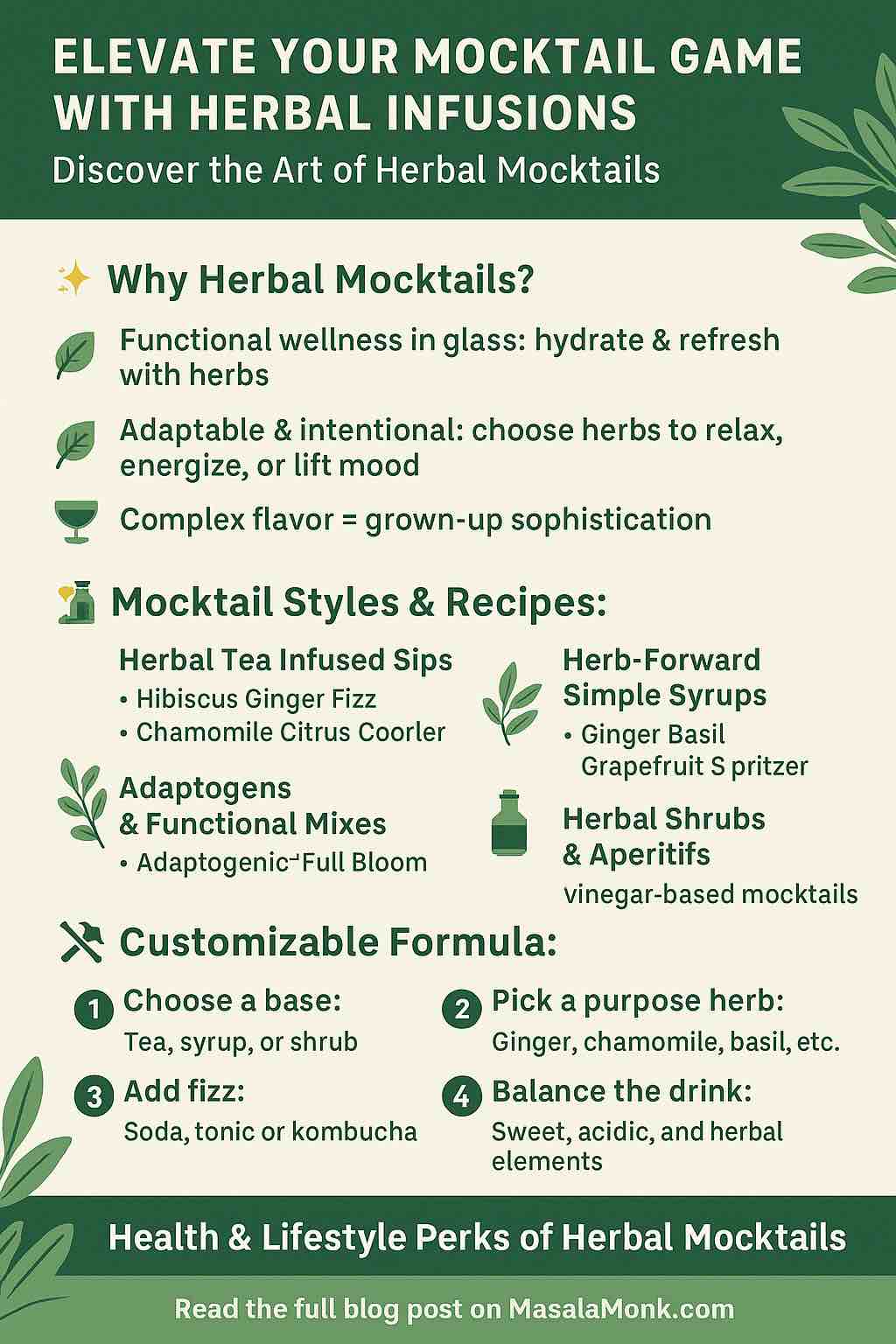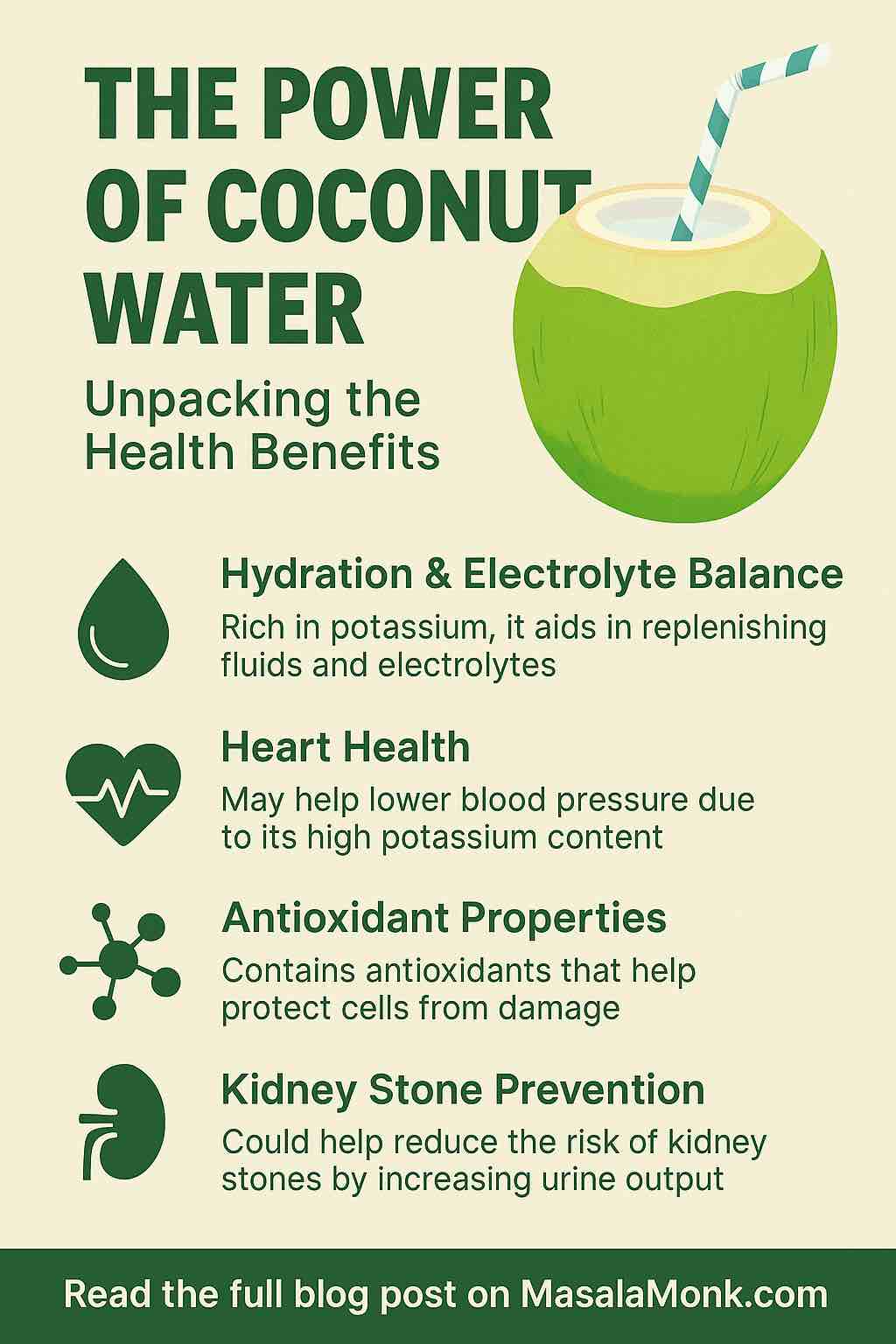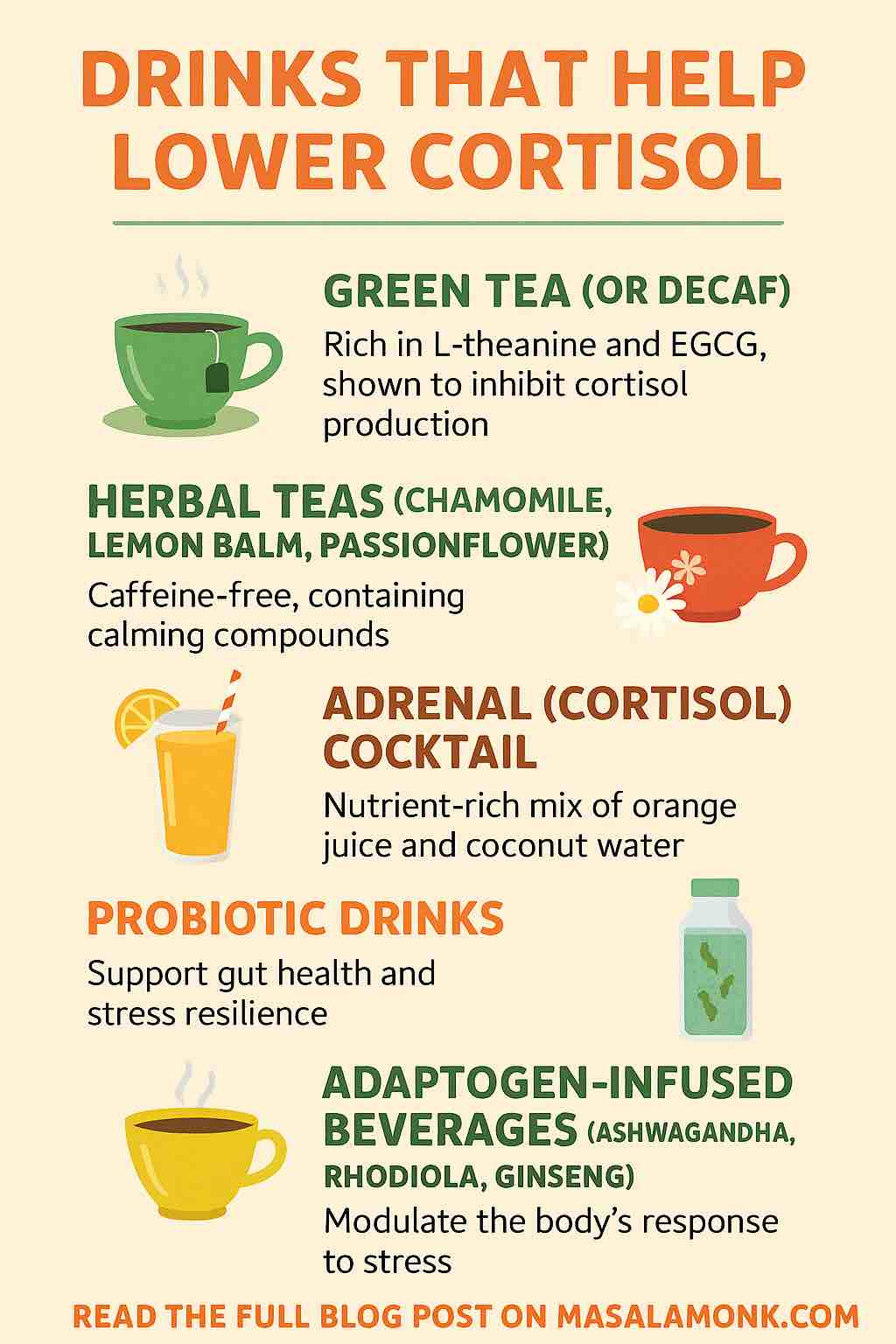
In the era of mindful drinking and wellness-centric lifestyles, herbal mocktails are taking center stage. These alcohol-free elixirs blend botanical ingredients, wellness herbs, and creative mixology to deliver sophistication, flavor, and function. Whether you’re unwinding at home, hosting a summer soirée, or embracing sober living, herbal mocktails are the ultimate beverage upgrade.
Why Herbal Mocktails?
Herbal mocktails go beyond being just a substitute for cocktails. They are:
- Wellness-Driven: Ingredients like chamomile, hibiscus, ginger, and adaptogens support digestion, relaxation, mood, and immunity.
- Flavor-Rich: Fresh herbs offer a range of complex flavors—from bright and citrusy to earthy and floral.
- Socially Sophisticated: They cater to a growing number of adults who seek alcohol-free options without sacrificing the grown-up feel.
Herbal Mocktail Foundations
1. Herbal Teas and Decoctions
Brewed herbal teas serve as flavorful and functional bases.
- Chamomile Citrus Cooler: Chamomile tea + orange juice + honey + soda.
- Peppermint Lavender Lemonade: Peppermint tea + lavender syrup + lemon juice + sparkling water.
- Hibiscus Ginger Fizz: Hibiscus tea + ginger juice + lemon + soda water.
2. Herbal Simple Syrups
Infuse sugar syrups with herbs to add depth.
- Basil Syrup: Pairs wonderfully with strawberry or grapefruit.
- Rosemary Syrup: Combines beautifully with lemon and sparkling wine alternatives.
- Lavender Honey Syrup: Perfect for calming evening drinks.
3. Functional Additions
Take it a step further with these superfood and adaptogenic extras:
- Tart Cherry Juice: Natural melatonin source for better sleep.
- Ashwagandha Drops: Stress relief and balance.
- Turmeric: Anti-inflammatory and pairs well with citrus.
Trending Herbal Mocktails of 2025
✨ Sleepy Girl Mocktail
- Tart cherry juice
- Magnesium powder
- Sparkling water
- Best served before bed to support sleep.
🌿 Ginger Basil Grapefruit Spritzer
- Fresh grapefruit juice
- Basil-ginger syrup
- Sparkling water
- Refreshing and energizing.
🌸 Adaptogenic “Full Bloom”
- Botanical non-alcoholic spirit (e.g., Three Spirit)
- Basil syrup
- Lime juice
- Tonic water
- A mood-lifting aperitif for evenings.
🍵 Rosemary-Lavender Lemon-Lime Sparkler
- Homemade rosemary and lavender syrup
- Lemon-lime soda
- Garnish with fresh herbs and edible flowers
How to Build Your Own Herbal Mocktail
Step-by-Step Formula
- Choose a Base: Tea, infused syrup, or a botanical zero-proof spirit.
- Add Herbal Functionality: Chamomile, mint, ginger, adaptogens, or tinctures.
- Introduce Acidity: Citrus juices or vinegars for complexity.
- Sweeten: Use honey, maple syrup, or monk fruit.
- Finish with Fizz: Sparkling water, kombucha, or tonic.
- Garnish: Fresh herbs, citrus wheels, or edible flowers.
Practical Tips for Home Mixologists
- Batch Brew Herbal Teas: Chill and store in the fridge for easy use.
- Make Ahead Syrups: Store in sterilized bottles and refrigerate for up to 2 weeks.
- Keep a Herb Garden: Fresh mint, basil, thyme, and lavender elevate any drink.
- Use a Cocktail Shaker: It helps blend syrups, citrus, and ice smoothly.
- Get Creative with Glassware: Presentation enhances the experience.
Mocktail Lifestyle and Wellness
Herbal mocktails are more than beverages—they’re a ritual. Whether it’s a calming lavender tonic before bed or an energizing hibiscus spritzer mid-day, these drinks contribute to your wellness, mood, and hydration.
They’re also inclusive. Hosting a gathering? Offering a crafted herbal mocktail shows thoughtfulness and sophistication, making everyone feel welcome—regardless of their alcohol preferences.
Final Thoughts
As we embrace more intentional lifestyles in 2025 and beyond, herbal mocktails are a delicious intersection of nature, health, and creativity. With a bit of experimentation and the right ingredients, you can turn every sip into an experience.
So next time you’re mixing a drink, skip the booze and reach for basil, hibiscus, or chamomile. Your taste buds—and your body—will thank you.
🔍 FAQs
1. What are herbal mocktails?
Herbal mocktails are non-alcoholic drinks that incorporate herbs, botanical ingredients, and natural flavors. They’re designed to offer complexity, health benefits, and an adult drinking experience without alcohol.
2. Are herbal mocktails healthy?
Yes. Many herbs like chamomile, ginger, hibiscus, and basil offer functional benefits—such as promoting relaxation, aiding digestion, and supporting immunity—while keeping the drink low in sugar and free of alcohol.
3. Can I make herbal mocktails without special equipment?
Absolutely. You can start with basic kitchen tools: a saucepan (for syrups), a strainer (for teas), a citrus juicer, and a jar or shaker for mixing. Glassware and garnish can elevate the experience, but aren’t essential.
4. Which herbs are best for beginners?
Start with familiar herbs like mint, basil, chamomile, and ginger. They’re easy to find, forgiving in flavor, and pair well with fruits and sparkling water.
5. How do I make an herbal syrup at home?
Simmer 1 cup water + 1 cup sugar (or honey) with 1–2 tbsp of fresh herbs for 10 minutes. Let it cool, strain, and store in the fridge. It keeps for up to 2 weeks.
6. Are there any side effects to using herbs in drinks?
Generally, culinary herbs are safe in moderate amounts. However, herbs like St. John’s wort, valerian, or adaptogenic tinctures can interact with medications—so check with a healthcare provider if unsure.
7. Can I serve these drinks at parties or events?
Definitely! Herbal mocktails are inclusive, visually stunning, and show attention to guest preferences. Batch-brewing teas or syrups in advance makes event prep simple.
8. What’s the difference between herbal teas and syrups in mocktails?
Teas offer a lighter, more diluted base and are often chilled and used like juice. Syrups are concentrated and used in smaller amounts to sweeten and infuse intense flavor.
9. How do I add fizz to my herbal mocktails?
Use sparkling water, tonic, seltzer, or even kombucha. Add it last when assembling your drink to maintain bubbles.
10. Where can I buy adaptogens or non-alcoholic spirits?
Health food stores, apothecaries, and online retailers carry adaptogens in tincture or powder form. Zero-proof spirits like Three Spirit, Lyre’s, or WhistlePig’s non-alc line are available online and in specialty beverage shops.












